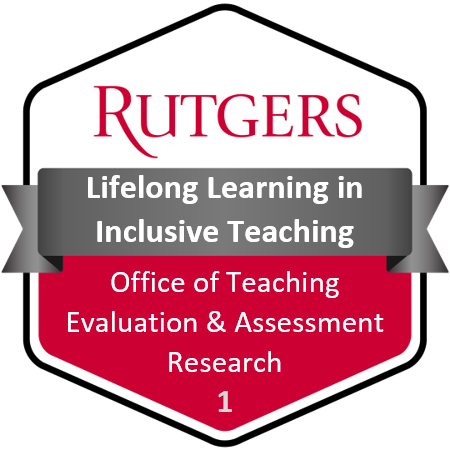

Paula B. Voos
- Professor and Director of Undergraduate Programs, Labor Studies and Employment Relations (LSER)
Education
Ph.D., Economics, Harvard University
M.A., Economics, Portland State University
A.B., English, Whitman College
Expertise
- Labor economics
- Employment relations theory
- Labor relations

Professor Paula Voos' most recently published research involves the impact of Right-to-Work (RTW) laws on shareholders wealth. The estimated impact of laws passed in this century indicates that it is likely RTW laws reduce nonunion workers’ earnings. Another recent paper involves how unions can use assessments of voting intent in organizing campaigns (coauthored by Adrienne Eaton and Sean Rogers). Earlier this same team investigated the consequences of union representation of graduate student employees. They found that such representation does not hurt the faculty-student relationship or academic freedom, and it results in greater student satisfaction with economic outcomes. Professor Voos’ first published work estimated the costs and benefits of union organizing programs from the perspective of the union’s current members.
Professor Voos is a public member of the New Jersey’s Public Employment Relations Commission. She is a past president of the Labor and Employment Relations Association and the editor of that Associations’ 1994 research volume, Contemporary Collective Bargaining in the United States. She has served on the Ford – United Autoworkers Voluntary Employee Benefit Association’s Board of Trustees, on NJ’s Benefits Review Task Force in 2005, and on the federal Commission on the Future of Worker-Management Relations (the Dunlop Commission) in 1994. She came to Rutgers from the University of Wisconsin in 1998, where she directed the Industrial Relations Research Institute.
Research Initiatives: Current initiatives involve sexual harassment by coworkers. One paper that is soon to be published investigates what leads arbitrators in union environments either (1) to uphold management punishment of such harassment, (2) to lessen the penalty, or (3) to uphold the grievance and vacate all punishment. This same paper looks at the changes in punishment over time, and the changes in arbitrators decisions over time. A key finding is that while distributive justice is important in these decisions, procedural justice has been growing in importance over time.
Steven E. Abraham, Adrienne E. Eaton, and Paula B. Voos, “Card Check Recognition: Resulting Labor Relations and Investor Reaction,” in Advances in Industrial and Labor Relations, ed. by Bruce Kaufman and David Lewin. Vol. 17 (2009), pp. 1-30.
Steven E. Abraham and Paula B. Voos, “Investors’ Assessment of California’s Health Insurance Act of 2003,” Industrial Relations, Vol. 47, No. 2 (April, 2008), pp. 209-228.
Haejin Kim and Paula B. Voos, “The Korean Economic Crisis and Working Women,” Journal of Contemporary Asia, Vol. 37, No. 2, (May 2007), pp. 190-208.
Dale Belman and Paula B. Voos, “High Wages and Union Decline: Evidence from the Construction Industry,” Industrial and Labor Relations Review, Vol. 60, No. 1 (Oct. 2006), pp. 67-87
- Undergraduate: Introduction to Labor Studies and Employment Relations
- Undergraduate: Perspectives on Labor Studies and Employment Relations
- Undergraduate: Economics of the Employment Relations
- Undergraduate: Issues in Work: Avoid Sexual Harrassment
- Masters: Introductory Seminar in labor and Employment Relations
- Masters: Economics and Demographics of Labor Markets
- Ph.D.: Seminar in Industrial Relations: A Survey of Scholarly Literature
- Public Service Member of NJ PERC



